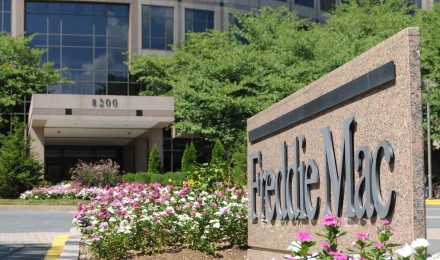At the beginning of the summer, home mortgage interest rates were making one record low after record low. Many homebuyers and homeowners took advantage of the lowest rates since the introduction of long-term mortgages in the decade of the 50s, to buy a home or refinance their existing mortgages. One of the homeowners refinancing a mortgage during this period was the founder and CEO of Facebook Mark Zuckerberg.
Not only is it somewhat amazing that one of the world’s richest person would go out and refinance a $5.95 million mortgage on a home he could easily pay for in cash – he received an astonishing interest rate of 1.05 percent.
Many people who heard about the tycoon’s new mortgage wonder how Zuckerberg could get a mortgage at such a ridiculously low interest rate. Well, the Facebook founder did not refinance into a conventional 15-year or 30-year fixed-rate mortgage. He obtained an adjustable-rate mortgage (ARM).
Adjustable Rate Mortgage
ARMs became very popular during the real estate boom. Banks and mortgage brokers aggressively market the product to homebuyers and real estate investors because it allowed borrowers to qualify for a higher loan than they could obtain with conventional fixed-rate mortgages. Adjustable-rate mortgage offer buyers a “teaser rate” well below the going interest market rate for the first year of the loan.
However, after the expiration of the one-year period for the introductory rate, borrowers get slammed with an escalating interest rate and higher monthly mortgage payments. This product played a crucial role in the housing market collapse.
At the time Zuckerberg acquired his deal, the average ARM, which usually has a set rate for a 12- month period before it recalculates, averaged a rate of 2.7%. Zuckerberg’s lender was willing to give him such a low interest rate because he agreed to accept a reset of his rate each month. The mortgage has an interest rate cap of 9.95 percent.
What Is the Risk?
In theory, Zuckerberg risks having his mortgage payment increase every month. The reality of the situation is that most economists expect interest rates to remain somewhat stable. Although interest rates have started to trend up in the last few weeks, the Federal Reserve Board Chairman Ben Bernanke revealed that the weak economy may engender another round of quantitative easing by the Fed. The Fed plans to address the issue at its September policy meeting.
For Zuckerberg, the size of his bank account eliminates any possible downside to accepting monthly interest rate resets. If interest rates happen to take off, he can simply tap his assets and pay off the obligation.
ARMs and the Average Borrower
Since the crash of the mortgage and housing markets, most borrowers who can lenders’ stricter credit and income requirements have steered clear of adjustable-rate mortgage products in favor of predictable fixed-rate home loans.
The current averages for 15-year and 30-year fixed-rate mortgages are 2.89% and 3.66%, respectively. Unlike Zuckerberg, most borrowers would not benefit from taking on the risk of an ARM.
At the beginning of the summer, home mortgage interest rates were making one record low after record low. Many homebuyers and homeowners took advantage of the lowest rates since the introduction of long-term mortgages in the decade of the 50s, to buy a home or refinance their existing mortgages. One of the homeowners refinancing a mortgage during this period was the founder and CEO of Facebook Mark Zuckerberg.
Not only is it somewhat amazing that one of the world’s richest person would go out and refinance a $5.95 million mortgage on a home he could easily pay for in cash – he received an astonishing interest rate of 1.05 percent.
Many people who heard about the tycoon’s new mortgage wonder how Zuckerberg could get a mortgage at such a ridiculously low interest rate. Well, the Facebook founder did not refinance into a conventional 15-year or 30-year fixed-rate mortgage. He obtained an adjustable-rate mortgage (ARM).
Adjustable Rate Mortgage
ARMs became very popular during the real estate boom. Banks and mortgage brokers aggressively market the product to homebuyers and real estate investors because it allowed borrowers to qualify for a higher loan than they could obtain with conventional fixed-rate mortgages. Adjustable-rate mortgage offer buyers a “teaser rate” well below the going interest market rate for the first year of the loan.
However, after the expiration of the one-year period for the introductory rate, borrowers get slammed with an escalating interest rate and higher monthly mortgage payments. This product played a crucial role in the housing market collapse.
At the time Zuckerberg acquired his deal, the average ARM, which usually has a set rate for a 12- month period before it recalculates, averaged a rate of 2.7%. Zuckerberg’s lender was willing to give him such a low interest rate because he agreed to accept a reset of his rate each month. The mortgage has an interest rate cap of 9.95 percent.
What Is the Risk?
In theory, Zuckerberg risks having his mortgage payment increase every month. The reality of the situation is that most economists expect interest rates to remain somewhat stable. Although interest rates have started to trend up in the last few weeks, the Federal Reserve Board Chairman Ben Bernanke revealed that the weak economy may engender another round of quantitative easing by the Fed. The Fed plans to address the issue at its September policy meeting.
For Zuckerberg, the size of his bank account eliminates any possible downside to accepting monthly interest rate resets. If interest rates happen to take off, he can simply tap his assets and pay off the obligation.
ARMs and the Average Borrower
Since the crash of the mortgage and housing markets, most borrowers who can lenders’ stricter credit and income requirements have steered clear of adjustable-rate mortgage products in favor of predictable fixed-rate home loans.
The current averages for 15-year and 30-year fixed-rate mortgages are 2.89% and 3.66%, respectively. Unlike Zuckerberg, most borrowers would not benefit from taking on the risk of an ARM.





